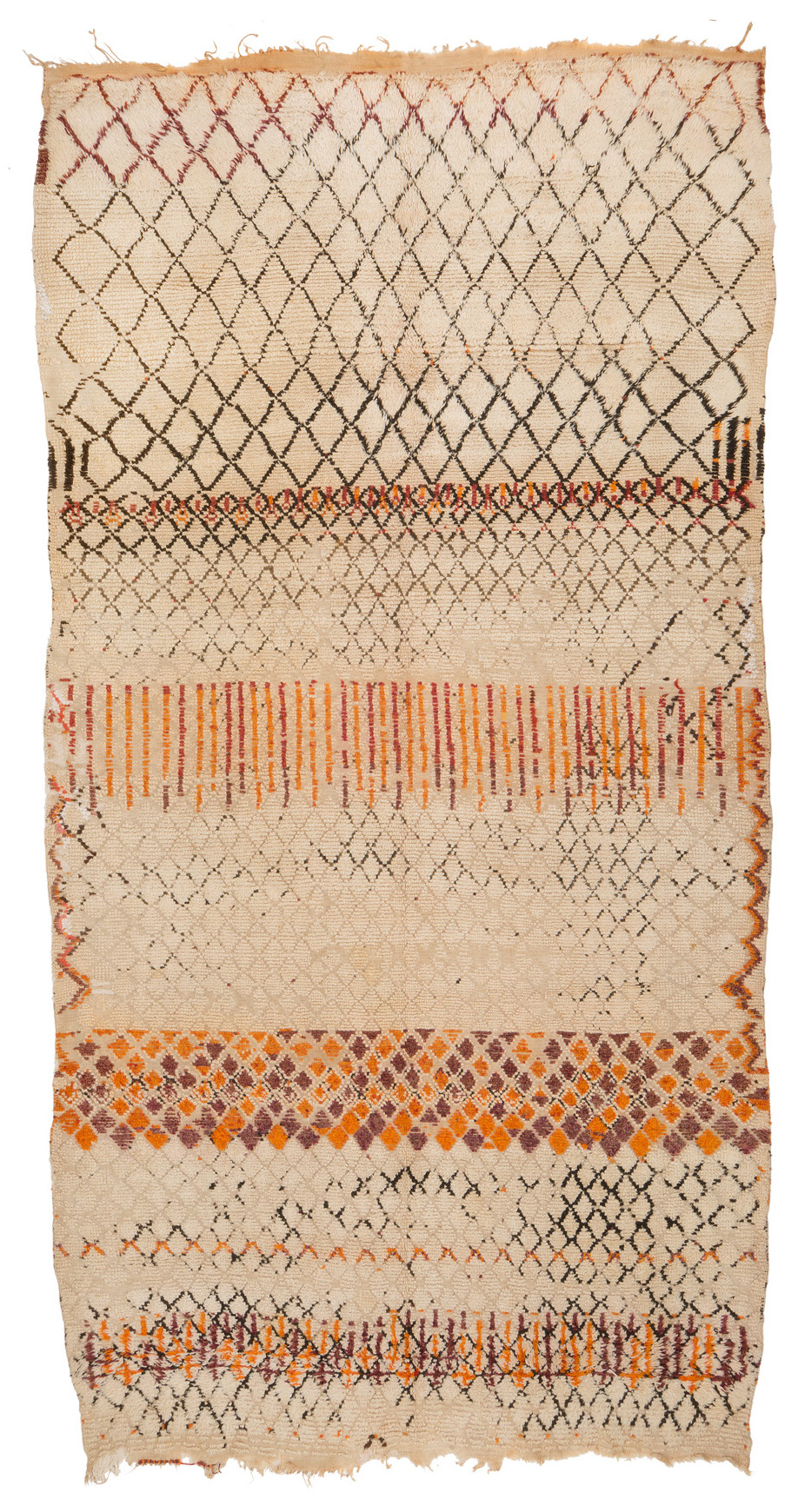Maghreb Mastery

Gebhart Blazek
Tuesday, February 21, 2023
The Moroccan carpet weaving culture is commonly described as a female domain, which has always been passed on from mother to daughter, from generation to generation. Production served only the family’s own needs, and commercialization did not take place until the 20th century. This picture certainly has a strong justification, but on closer examination it is inaccurate and appears more multifaceted and differentiated in detail.
In the Middle Atlas, as well as in eastern Morocco and beyond in the more easterly regions of the Maghreb, professional male master weavers who carried out orders for wealthy families as itinerant craftsmen played an important role. In addition, in the local context, the works of semi-professional female master weavers also had a major impact on local production for everyday family needs.
In particular, the activity of the wandering male master weavers counteracts the image of the isolated nomadic culture, where for centuries a tradition untouched by external influences has survived time and space. Both technical and methodological details provide evidence that direct and indirect connections existed in the Mediterranean region and also to the Orient, even if these have been little researched to date.
Gebhart Blazek is a specialized dealer and independent researcher in the field of vintage Moroccan carpets and textiles since the early 1990s.
He has spent more than 24 months in field-research projects in Northern Africa since 1992. He is a frequent contributor to international conferences and specialized publications. He also works as a consultant for museums, auction houses, business platforms, private collectors, designers and architects.
